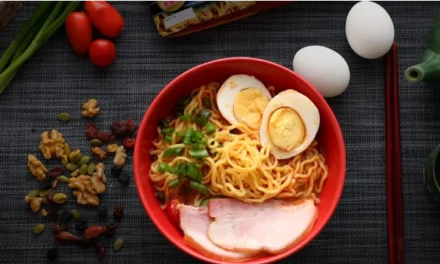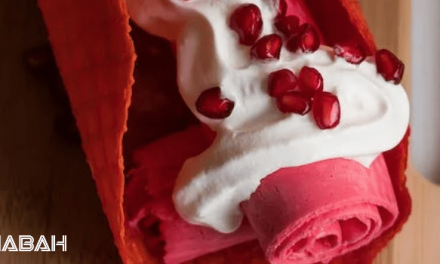Boasting a long history spanning over six millennia, popcorn represents a beloved snack across countless cultures.
That fluffy, crunchy sensation when corn metamorphoses into billowy pieces excites tastebuds globally.
But can devout Muslims partake in popcorn’s tasty simplicity while upholding their faith’s dietary principles? Is popcorn halal?
This extensive guide will uncover all facets around popcorn and halal compliance – from its core ingredients to preferred cooking methods to issues around manufacturing and certification.
Let’s crunch into this crunchy snack through the discerning lens of halal standards!
A Brief History of Popcorn’s Ancient Origins
While popcorn today gets popped through modern methods, its heritage traces back thousands of years.
Archaeologists discovered popcorn remnants in New Mexico caves inhabited by Pueblo peoples dating over 5,600 years ago!
Central and South American indigenous tribes traditionally cooked corn kernels over fire using pottery or stoneware vessels. Hot saltwater produced steam making the dormant moisture inside the kernel explode the hard endosperm open.
The Aztecs also relished what they dubbed “momochitl” – aka popped corn.
By the 19th century, popcorn became an iconic American snack across the Midwest and East Coast as street hawkers tantalized passersby with the aromatic, fluffy white treat.
As cinema gained popularity in the 1900s, movie theaters seized onto popcorn as the perfect accompaniment. The combination of escapist entertainment with hearty popcorn made for blockbuster sales.
Today, almost every world cuisine incorporates popcorn whether sweet or salty.
Global consumption exceeds 16 billion quarts annually!
Now that we know of popcorn’s timeless mass appeal, let’s evaluate its composition through the lens of Islamic diet principles.
Framework of Halal Standards for Food Products
To assess if popcorn meets Islamic dietary compliance, we must establish what guidelines halal-certified foods mandate.
Halal regulations rooted in Quranic wisdom essentially translate to “permissible” in Arabic. They focus on spiritual purity during food production methods and consumption.
For all food to earn halal status, it must adhere to key criteria:
-
Avoid all pork/pig byproducts or meat from improperly stunned animals
-
Exclude alcohol or other intoxicating substances
-
Prevent contamination with prohibited items during preparation/processing/packaging stages
-
Guarantee integrity throughout the supply chain via audit checks
Additionally, certain traditional rules govern specifics around dairy, gelatin, glycerin and emulsifiers.
So using this framework, let’s break down popcorn’s typical ingredients and common production approaches.
An Analysis of Primary Popcorn Ingredients
When we visualize popcorn, three key components come to mind:
1. Corn Kernels
All popcorn begins from corn – specifically Zea mays everta – a special variety bursting open most effectively thanks to its thicker hull containing the perfect moisture ratio that converts to steam.
As an untouched whole grain, corn remains intrinsically permissible for halal diets.
However, sourcing stands paramount, as kernels exported globally can risk contamination during transit or storage if facilities handle non-halal items.
2. Oils Used for Popping
To facilitate popping, corn kernels require a heating medium like oil or butter. This helps conduct ambient heat while preventing burning.
Clarified butter (ghee) – being a dairy derivative – typically complies except in rare cases where animals consumed non-halal feed.
Meanwhile vegetable oil sources like canola, coconut or sunflower securely meet halal standards assuming no lard gets introduced.
3. Salt, Sugar or Other Seasonings
To flavor that popped corn, salt ranks as the most popular topping. Occasionally butter, sugar or other spices get added too.
Salt in its pure form is generally halal-approved. But some gourmet finishing salts now infuse ingredients like wine, bacon and pork fat that nullify halal status.
As for sweet and savory seasonings, the halal suitability relates to their composition and manufacturing processes.
So thus far – basic popcorn ingredients themselves facilitate halal compliance. But certain preparation and production methods can complicate things…
How Popcorns Preparation Introduces Halal Considerations
While popcorn’s core ingredients meet halal criteria – certain cooking practices and manufacturing processes raise valid concerns:
Stovetop Popcorn Preparation
Popping kernels in oil or butter over heat represents the traditional approach, but risks emerge around:
- Reusing clarified butter between batches – If the same butter gets employed for halal and non-halal cooking, cross-contamination can occur
- Insufficient washing of pots – Traces of non-halal foods clinging to cookware may transfer
Microwave Popcorn Products
Microwave popcorn offers convenience, but relies on various chemical additives rarely holding halal certification:
- Dairy derivatives like whey powder or lactose
- Flavorings and preservatives often containing unverified enzymes, glycerin sources or solvents
- Packages sealed using non-halal adhesives
Commercial Popcorn (Cinemas, Fairs, Etc)
The mass popcorn makers feeding theaters, fairs and stadiums also provide minimal transparency around:
- Ingredient sourcing – suppliers seldom confirmed halal
- Cross-contamination – shared poppers/scoops may touch non-halal
- Hygiene controls – lack of handwashing or glove policies
So while popcorn itself is halal-friendly, humans influence its permissibility through questionable processing.
Availability Issues Around Verified Halal Popcorn
Muslims seeking guaranteed halal popcorn face some uphill battles:
Mainstream Popcorn Brands
Iconic names like Orville Redenbacher and Pop Secret fail to carry halal certification currently. Their facilities likely manage both halal and non-halal ingredient pipelines without adequate segregation.
Specialty ‘Halal’ Popcorn Exists
Options branded ‘Halal Popcorn’ are emerging – often imported from Muslim-majority countries like Malaysia or Pakistan where halal compliance is mandatory. But global availability depends on niche ethnic grocers.
Some US/UK Muslim entrepreneurs now sell gourmet halal popcorn online but prices run high and selections stay limited.
Commercial Options Prove Problematic
Cinemas and concessions selling popcorn obligate Muslims to inquire directly about protocols to feel satisfied – a rare accommodation.
Air-popped bring-your-own popcorn provides the only certainty.
So guaranteeing popcorn’s absolute halal integrity requires vigilance for Muslim consumers – but solutions do exist.
Practical Guidance for Keeping Popcorn Halal
Given the barriers around verifying commercial popcorn’s halal status – what steps can help mitigate risk?
When Cooking Your Own
- Use dedicated cookware not employed for haram foods
- Wash thoroughly between different food batches
- Source popcorn and oil/butter from halal suppliers
When Purchasing Packaged
- Stick to plain flavors avoiding uncertain additions
- Inspect certification seals like the Islamic Food and Nutrition Council of America’s
- Purchase imported halal brands via ethnic marts or online
When Eating Out
- Inquire directly with management about ingredients and supplier standards
- Refrain from consuming if doubts exist around preparation practices
While extra diligence proves required, Muslims can still relish tasty popcorn by focusing on purity sourcing and mindful verification of production procedures.
The Consensus – Is Corn Ultimately Halal?
In summary – popcorn intrinsically meets halal standards. But variability around manufacturing methods necessitates caution from Muslim consumers to guarantee its permissible pedigree.
By prioritizing accountable ingredient sourcing, ethically-conscious preparation and transparency across the supply chain – devout Muslims can certainly savor both buttery and air-popped corn while upholding their valued traditions.
Frequently Asked Questions: Is Popcorn Halal?
Yes, popcorn is generally considered halal as it is made from corn, oil, and salt which are permissible ingredients in Islamic dietary laws.
What ingredients are used in making popcorn?
Popcorn is made from corn kernels, oil, and salt. Some variations may include additional flavorings like caramel or cheddar.
Can I find halal popcorn in shops?
Yes, many shops offer halal-certified popcorn or popcorn that uses halal-friendly ingredients. It’s important to look for the halal label or check with the manufacturer for assurance.
Does caramel popcorn fall under the halal category?
Caramel popcorn can be halal, but it’s important to check the ingredients to ensure that it complies with halal dietary laws, especially regarding any potential content of non-halal substances.
Are there any alternative options for halal popcorn?
Yes, there are alternative options for halal popcorn available in the market. You can explore different brands that offer halal-certified popcorn or make your own at home using halal ingredients.
Do some popcorn recipes contain non-halal ingredients such as pork or alcohol?
Some popcorn recipes may include non-halal ingredients such as cheese or flavorings that contain non-halal substances. It’s important to read the ingredients carefully or choose certified halal options to avoid any non-permissible ingredients.
Are there any specific considerations when buying popcorn in the USA?
When purchasing popcorn in the USA, it’s important to check for any non-halal ingredients, especially in flavored or pre-packaged varieties. Always look for the halal-certified label or verify the ingredients with the manufacturer.
Can popcorn containing cheese be considered halal?
Popcorn containing cheese can be halal if the cheese used is made from halal-certified ingredients and processes. It’s important to ensure that the cheese used complies with Islamic dietary laws.
Does Garrett Popcorn offer halal options?
Garrett Popcorn may offer halal options, but it’s important to check with the company for specific information about their ingredients and production processes to ensure compliance with halal standards.
What should I look out for to make sure the popcorn I’m purchasing is halal?
When purchasing popcorn, look for the halal certification label, check the ingredients for any non-permissible substances, and if in doubt, reach out to the manufacturer for information regarding the halal status of their products.





